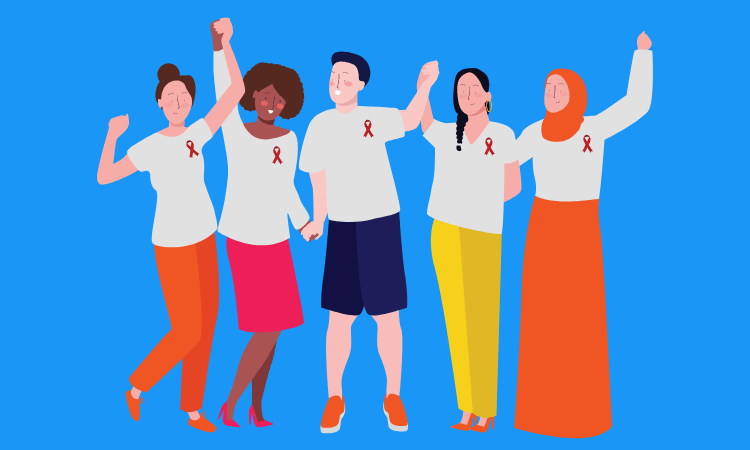External self-awareness helps you navigate the complex web of relationships and social dynamics.
You see, self-awareness isn’t just about knowing yourself.
It’s also about understanding how others see you and using these insights to create harmony in your social interactions.
It can help you to:
- become more effective in your communication;
- connect with others on a much deeper level;
- make your social interactions more enjoyable.
External self-awareness strengthens all your relationships.
In this article, we’ll explore the essence of social perception. And you’ll learn how becoming aware of the perception of others leads to deeper connections and more fulfillment.
Let’s dive in!
P.S. Do you want to gain awareness to boost your self-confidence? Sign up for my free e-mail series to build foundational self-worth for a truly fulfilling life!

The definition of external self-awareness
External self-awareness is about understanding how others perceive you and your actions. It involves being aware of how your behaviors, communication style, and presence are experienced by those around you.
In short, what do others think about you?
You might think, who cares?
And to that, I say: You should care!
You see, external awareness isn’t about trying to blend in or changing who you are to please others. Rather, it’s about understanding the impact of your word choices, behaviors, and actions on others.
Recognizing how your character influences your interactions enables you to navigate social situations with greater empathy and effectiveness.
Before we dive deeper, let’s understand…
External vs internal self-awareness
In the best book about self-awareness, called Insights, Eurich explains the difference between internal and external self-awareness.
- External self-awareness refers to your understanding of how others perceive you, and your ability to adjust your communication style.
- Internal self-awareness means to know yourself and understand your internal states like emotions, motivations, strengths, and weaknesses.
What’s even more interesting?
Eurich found zero correlation between those two types of self-awareness. In other words, you can deeply understand how others perceive you and yet struggle with who you are.
And vice versa.
So, ensure you develop internal self-awareness too.
Now, let’s deepen our understanding of external self-awareness.
What are your superpowers?
Take this free personality test to uncover your personal blueprint for success and happiness. Within minutes, you gain insights into your personality and strengths, allowing you to experience more fulfillment and joy.
Discover your strengths today
Examples of external self-awareness
For this next section, we’ll cover several everyday scenarios to better understand the concept of external self-awareness.
Each example will highlight its importance.
As we go through these examples of external self-awareness, think about how these insights can lead to better interactions and stronger relationships.
Example #1: External self-awareness in your career
Situation: As a junior graphic designer, you notice that your designs often receive many revisions from senior colleagues. And, you’re unsure why.
External self-awareness: You realize that you might not fully understand the expectations or preferences of your colleagues and clients. Perhaps there’s a gap in how you interpret project briefs compared to what’s expected.
Outcome: You decide to proactively seek feedback and clarification on your designs before submitting them. You not only gain valuable insights, but you also notice that this proactive approach helps you build better professional relationships with your senior colleagues.
Example #2: Social perception in networking
Situation: You attend networking events to meet industry professionals. However, you feel like your interactions are not as impactful as you’d like.
External self-awareness: You realize that in your eagerness to impress, you focus too much on talking about yourself.
Outcome: At the next event, you make a conscious effort to ask questions and show genuine interest in the people you meet. This shift leads to more joyful conversations and leaves a positive impression.
Example #3: External awareness in your relationships
Situation: You observe that your partner seems withdrawn whenever you talk about your day in great detail.
External self-awareness: You recognize that your way of communicating might be overwhelming for your partner, who prefers concise and interactive conversations.
Outcome: By adjusting your communication style to be more inclusive and engaging, you experience more meaningful conversations with your partner.
Did you notice how each example of external self-awareness helps you to understand the situation and approach it with more empathy?
Imagine how this public self-awareness can affect your relationships.
Why is external self-awareness important?
External self-awareness plays a pivotal role in your social interactions, professional growth, and communication effectiveness.
Here’s why external self-awareness is important:
- Interpersonal relationships: Understanding how others perceive you fosters empathy and helps you relate to them. This leads to deeper and more meaningful conversations, strengthening your relationships.
- Effective communication: Being able to tailor your communication style to different audiences improves effectiveness and engagement.
- Collaboration: External self-awareness promotes teamwork and helps you to defuse and resolve conflicts more effectively.
- Feedback reception: Understanding the perception of others can make you more open-minded and receptive to their feedback.
- Leadership skills: External self-awareness is vital if you want to motivate others and be an effective leader. And everyone is a leader to a certain degree.
External self-awareness is a key factor in effectively navigating your social interactions and strengthening your relationships. It leads to well-being, career success, and fulfillment in life.
How to increase your external self-awareness?
Self-awareness, communication, and relationships are some of life’s most complex aspects. So, view your pursuit of external self-awareness as an ongoing journey, not a destination.
While there are various methods to expand external self-awareness, I suggest combining solitude with social practices.
For example, combine self-reflection with social intelligence workshops.
Here’s an overview of helpful habits to gain external self-awareness:
- Seek feedback: Actively asking for feedback from colleagues, friends, and family is the fastest way to understand how others perceive you. Let them provide feedback anonymously to get truthful responses.
- Observe reactions: Pay attention to people’s reactions and non-verbal cues during your interactions to gauge your effectiveness.
- Role reversal: Try to put yourself in others’ shoes in various situations to better understand their perspectives. For example, use this method as part of your evening routine to reflect on your daily interactions.
- Active listening: Make it a habit to listen more than you speak and pay attention to their (non-verbal) response. Rather than seeking moments to speak your mind or give advice, ask thoughtful follow-up questions.
- Body language awareness: Pay attention to your own non-verbal cues and how they might be interpreted by others.
- Cultural exposure: Expose yourself to new cultures and social settings to broaden your understanding of different viewpoints and social norms.
- Professional development: Participate in workshops that focus on developing interpersonal skills like communication and leadership.
- Video recording: Recording yourself during presentations or meetings can be eye-opening, as it allows you to observe your body language, tone, and interaction styles.
Developing a few social self-awareness habits can greatly increase your self-understanding and lead to more harmonious interactions.
Valuable tools and resources for social self-understanding
In addition to developing habits, several tools can speed up your progress in gaining external self-awareness.
Here are several effective options:
- 360-Degree Feedback: This is a comprehensive feedback method that’s often used in work environments. The idea is to gather insights about your behavior and impact from a wide range of sources, including your colleagues, supervisors, and clients. But you can use a similar idea in your personal life too. Ask for feedback from all sorts of people who you interact with frequently. Ideally find ways, like Google Forms, to allow for anonymous responses to encourage honesty.
- The best personality tests: Tests like the Myers-Briggs Type Indicator (MBTI) not only help you understand your personality traits but also provide insights into how others may perceive you. And they offer ideas to adjust your approach to various social situations.
- Coaching: Regular sessions with a coach can provide ongoing feedback and insights into your interpersonal skills.
- Peer mentoring: If you get the opportunity to coach a peer at work, this can greatly increase external awareness and improve your social skills.
- Professional development networks: Engaging in industry groups and positive online communities can provide informal feedback. It’s also a space to observe how others interact and communicate. That said, be careful with social media communities where people prefer to troll rather than provide support or constructive feedback.
Each of these tools offers a unique perspective.
Use a combination of habits and strategies to develop a well-rounded view of how you interact and how you’re being perceived by others.
What’s next?
External self-awareness is the understanding of how others view you and your behavior. It also involves your ability to adapt your communication style to suit different social settings.
Developing these insights improves your communication effectiveness and empathy, leading to more joyful interactions and fulfilling relationships.
Key takeaways:
- External self-awareness involves understanding how others see you and adjusting your communication style to improve your interactions.
- External awareness leads to more empathy, meaningful interactions, and strengthens your relationships.
- Combining solitude practices like self-reflection with social exercises like active listening is key to quickly improving external self-awareness.
Further resources:
- Best guided self-reflection journals
- The best books about self-awareness
- The best books about communication
- The best personality tests for self-awareness
- Truity review: the best online personality assessments
Challenge: In your next conversation, focus more on listening and observing the other person’s reactions, rather than on how you should respond.
Looking for more tips for personal growth and fulfillment? Sign up below to receive my best insights for creating a life you love!

